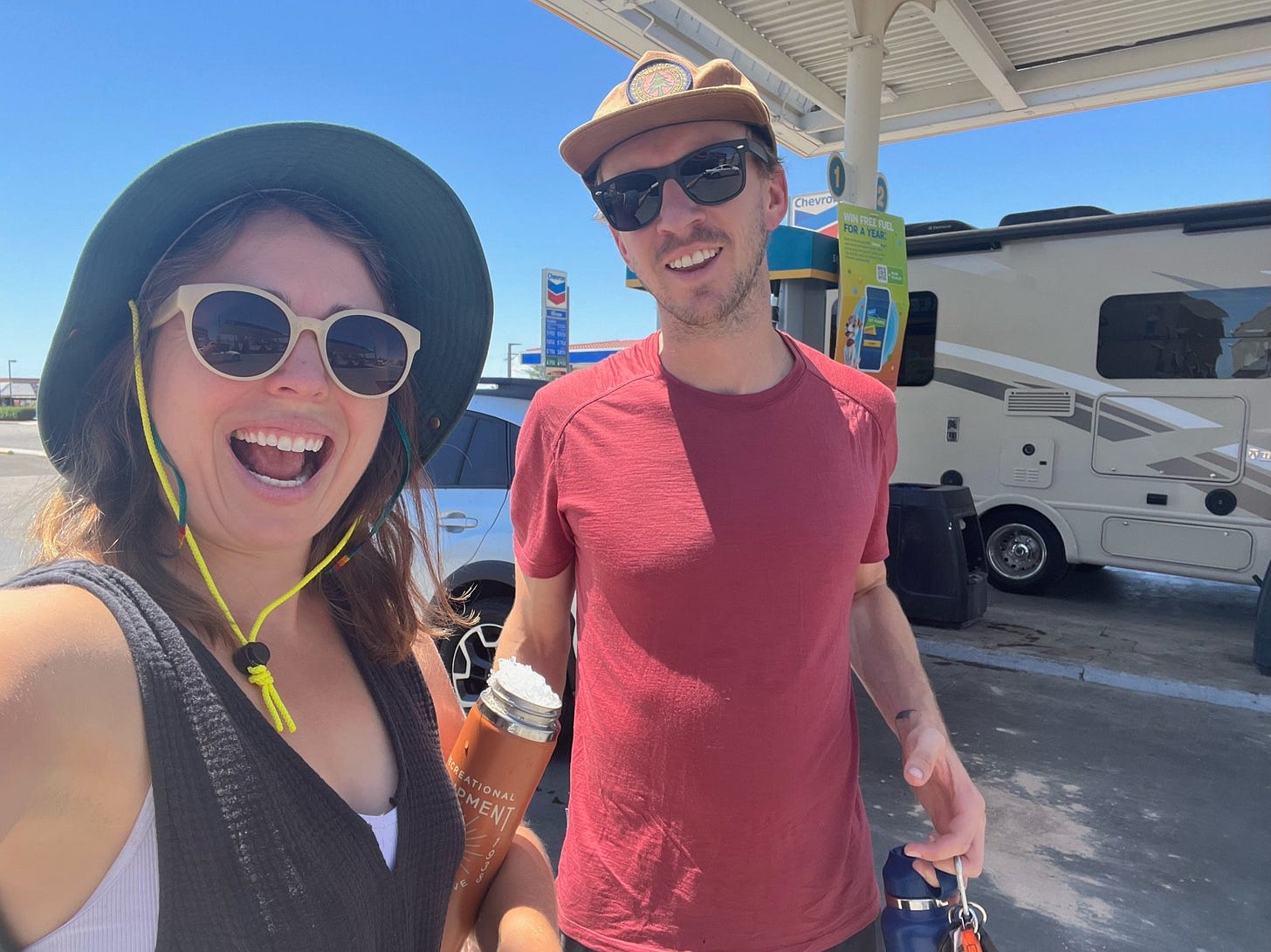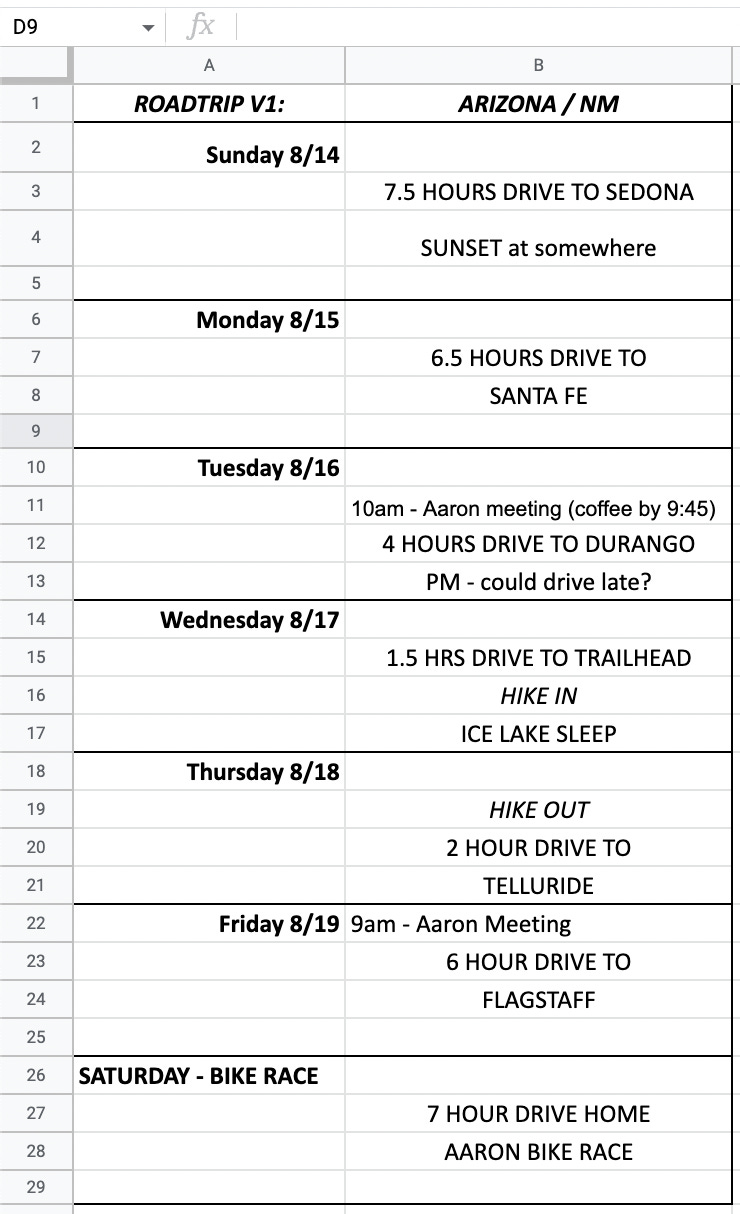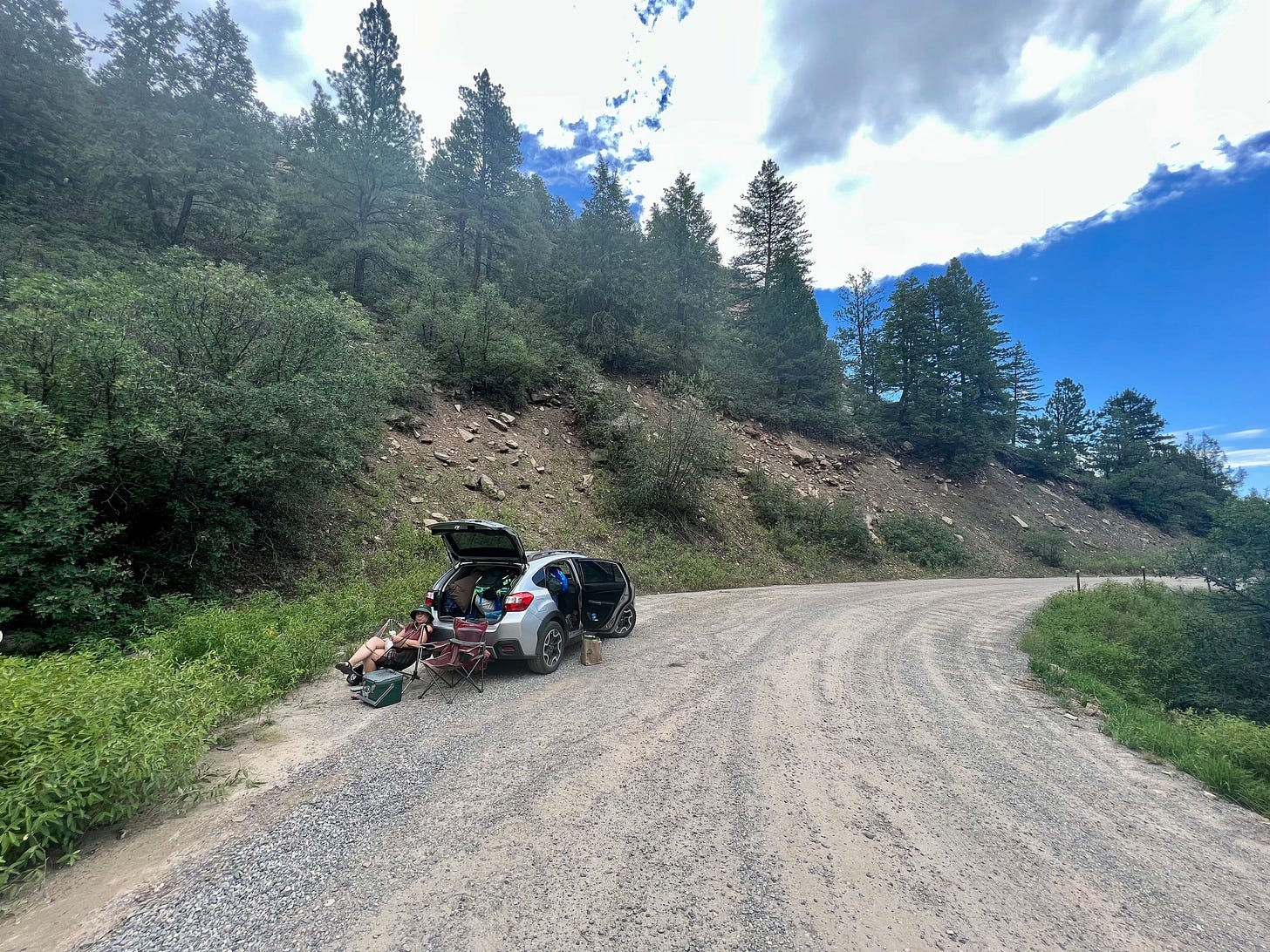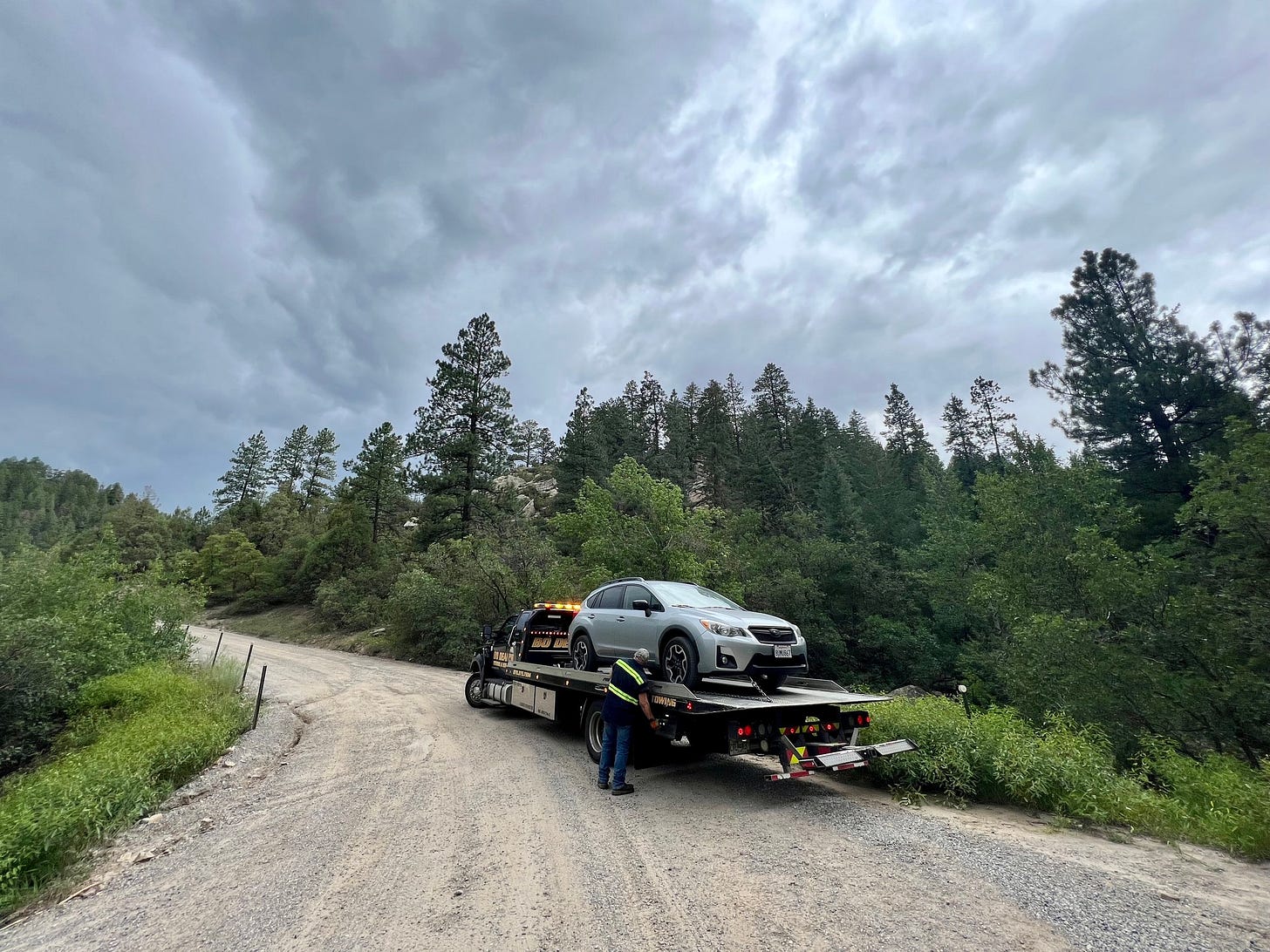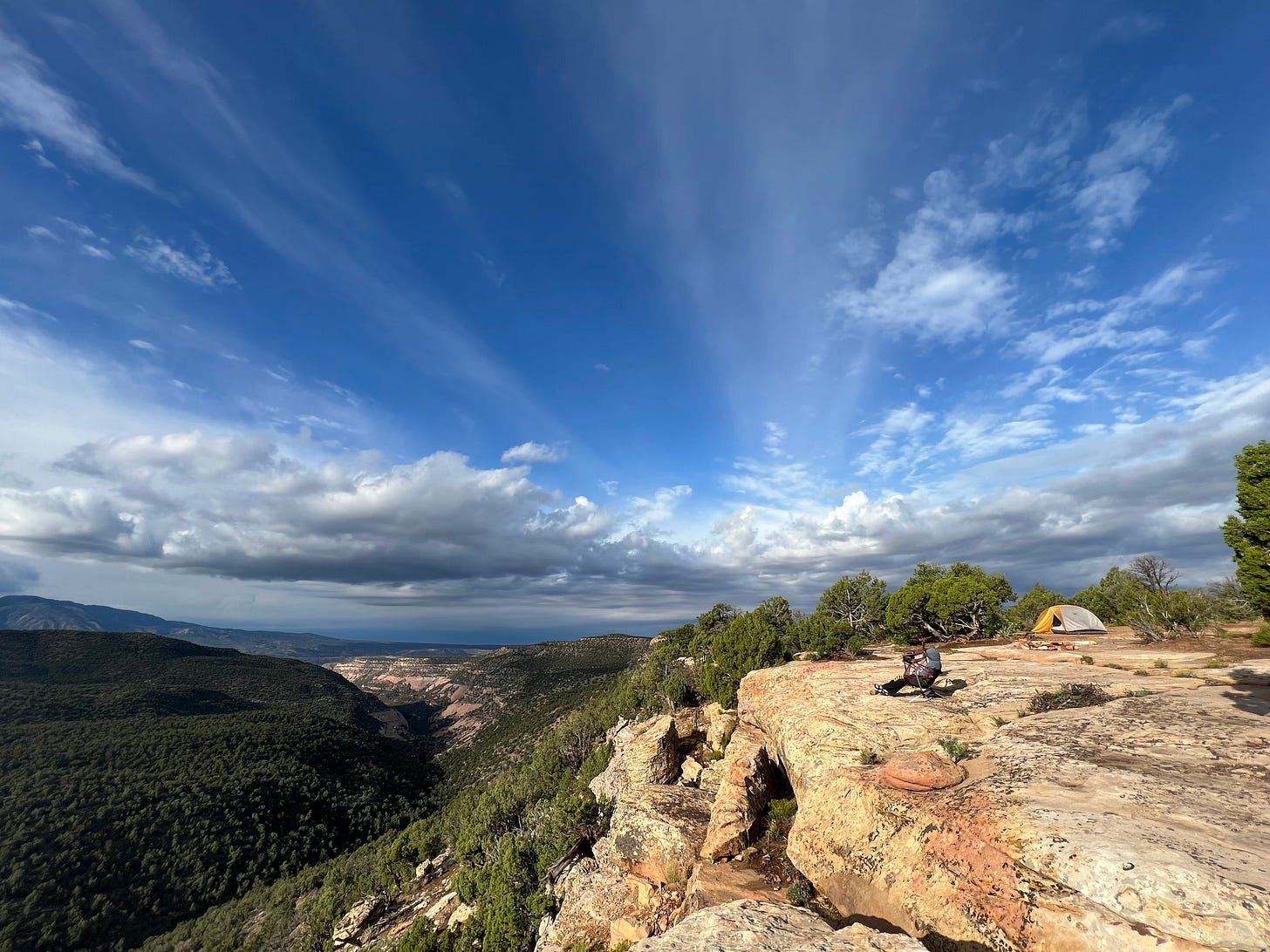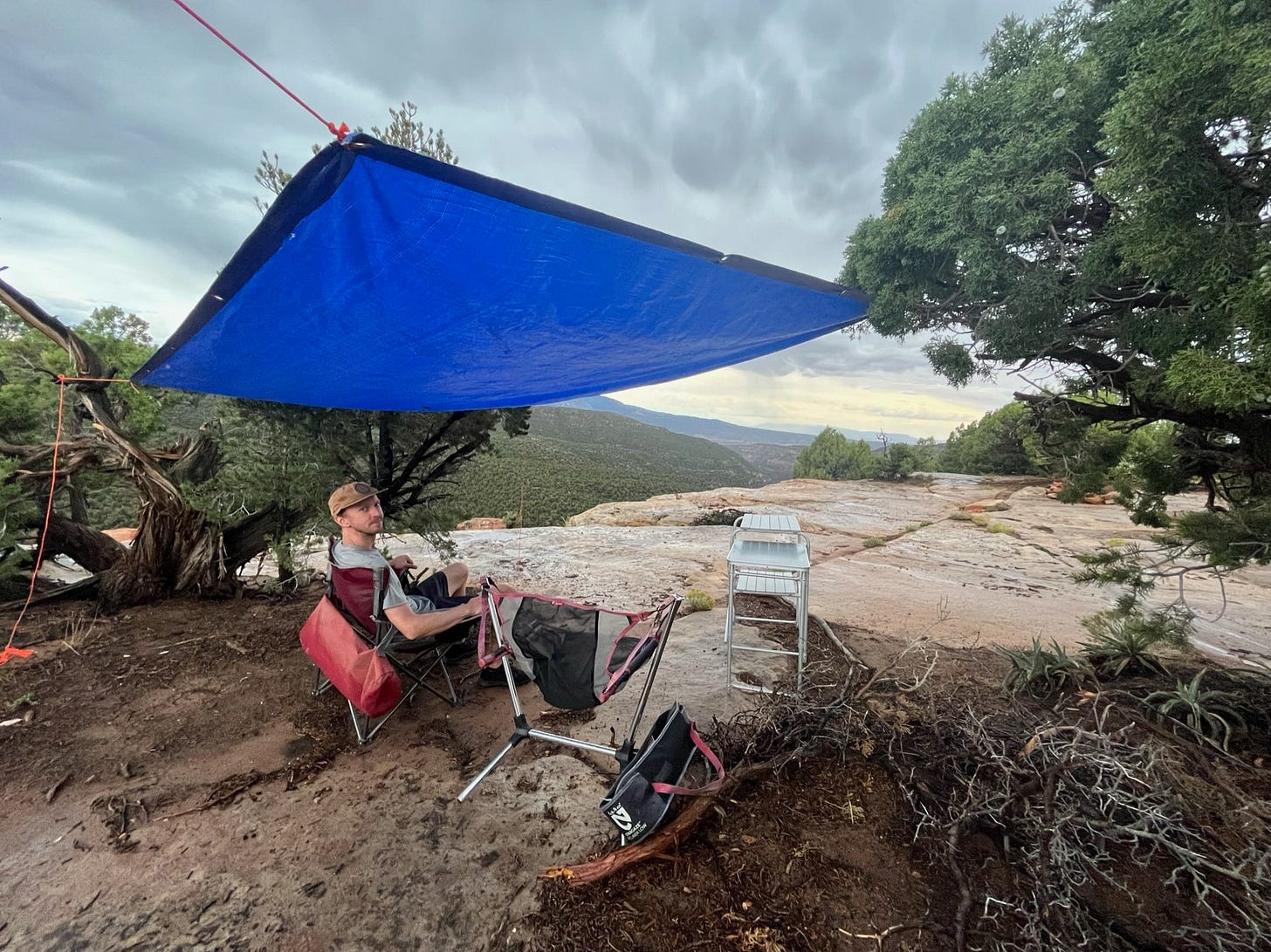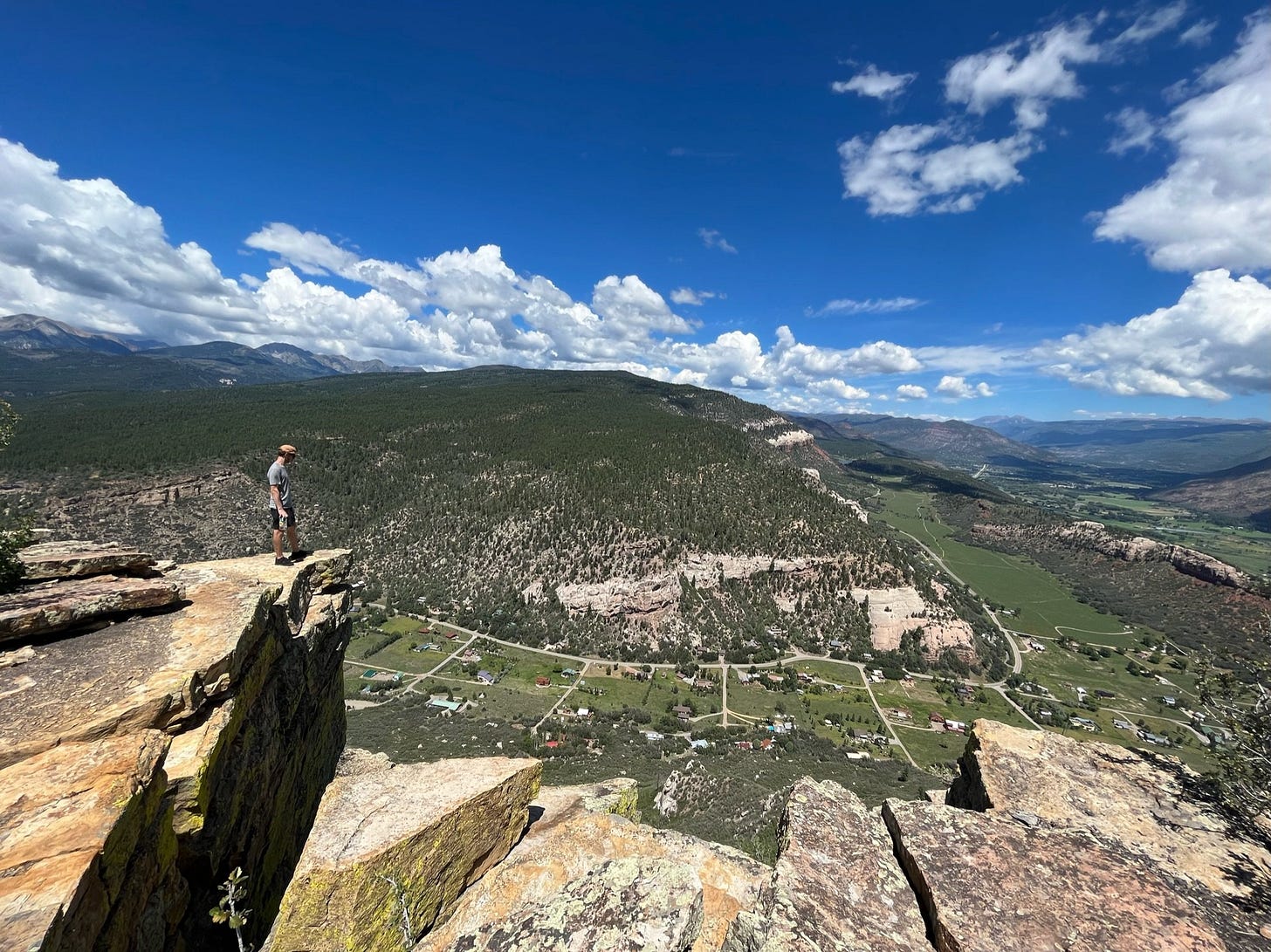How to Plan a Road Trip
The adventure begins when your car breaks down 1,000 miles from home.
On a warm Sunday morning in August, Nicole drove to pick up Belles bagels while I threw all the camping gear we own into the car. It’s been a busy season of life for both of us, which meant I used “the more you bring the less it is possible to forget” packing approach. Alas, this resulted in us bringing along two full size bear canisters—which we never used—and zero headlamps between the two of us.
We only organized a minimal outline for the trip, making sure to leave plenty of room for spur-of-the-moment road trip-isms. We knew how long the drive was each day and what city we wanted to arrive in, but didn’t book any campsites or places to stay in advance. Both Nicole and I tend to be pretty controlling people, so it took a solid day on the open road to adjust to the relaxed pace of a road trip. Once we settled in, though, it was refreshing. All we had to do was set a course and go with the flow.
The plan was to switch off driving so I could get some work in from the road. Tulkas (my Subaru Crosstrek) is a 5 spd manual and Nicole figured she could handle a few hundred miles of open desert highway while I plugged away at some emails.
That was the plan, until Monday afternoon. Our second day on the road, Tulkas’ clutch started making an unmistakable squealing sound. By Tuesday morning, 800 miles from home, it had gotten worse. From what I understood about clutches at the time (which was minimal, to be sure) the throwout bearing was going out. While the noise was a sure sign to replace it soon, throwout bearings weren’t known to suddenly and catastrophically fail.
On Wednesday morning, mine suddenly and catastrophically failed. Also loudly failed. After I’d woken up the entire campground with horrible grinding metal sounds, three guys wandered over and helped me push the car out of the site, where we rolled in neutral down the hill until I managed to get it into third gear. I understood the gist of how to drive a manual transmission without a clutch, but had never practiced it before, and now we were rumbling down a dirt road towards town without cell service, a way to idle the car, or a real plan for what to do when we inevitably reached traffic, intersections, and stop lights.
A mile or so down the road we miraculously came across a tow truck driver. When he heard the sounds my car was making, he shook his head and motioned to turn off the car. He had just dragged a 4Runner out of a gully. The driver had gotten distracted the previous night while driving up the road in the dark, missed the turn, and rolled into a drainage ditch. The car ended up on its side and the driver, miraculously unhurt, had managed to climb out of the door and walk the mile up the road to his campsite in the dark.
The other guy’s car was definitely totaled, but when I chatted with the driver he was most upset about his stand up bass that had been stored in the back seat when he crashed. It was completely demolished in the accident. He looked like he’d lost a part of himself with it. Really helped put my busted clutch in perspective.
Our initial estimate for a tow from AAA was 2-3 hours, so naturally we set up our camping chairs and passed the time playing cards and reading. We’d planned to be hiking to a lake that day, but hanging out on a road in the forest wasn’t the worst thing to be doing instead. When three hours had passed, Nicole called again. Still no driver assigned, but we were first in the queue. Another hour. Another call. Still no driver.
Meanwhile, we had been calling half a dozen auto shops in Durango trying to find one that had a new clutch assembly to get back on the road. Everyone was booked out for weeks. I needed to be back in LA to film a bike race on Saturday. It was Wednesday, and we were a thousand miles from Los Angeles, stranded in a forest with a car that wouldn’t drive. I’d wanted to lose a little bit of control on this road trip, but this was getting out of hand.
But by another stroke of good fortune, the Subaru dealership in Durango called me back and said they had one new clutch in stock that would fit my car, and they had an unexpected opening in their service schedule. If I could get the car to them before they closed at 5:30pm, they could have it ready the next day.
At that point, we’d been waiting on the side of the road for five hours and had officially entered AAA purgatory. If you’ve never visited, let me explain: AAA purgatory is the horrible little place at the end of the phone script where stranded motorists in rural areas find themselves when no tow truck drivers are available. The root level of the code. The part of the conversation where AAA says thank you for your patience but you might want to start walking.
The only new piece of information one learns in this liminal space is that AAA will reimburse you if you decide to fend for yourself and hire a private tow company, which we obviously immediately did.
Well, Nicole did. At this point I’d lost all hope and was wandering around in the gully helping the driver of the totaled 4Runner look for his bike helmet that he thought may have flown out the window in the crash. I guess it felt like one small bit of good I could do in that moment.
A tow truck showed up an hour later and managed to get Tulkas to the Subaru dealer only minutes before closing. We ubered into town, ate our first hot meal of the day at 7pm, and spent the night in a cheap motel. Subaru finished the car the following afternoon and by 5pm on Thursday we hit the road to begin the long drive home. 24 hours earlier I hadn’t been sure we would be driving this car back to Los Angeles at all. It felt fantastic to be moving again.
That night, Nicole found a campsite a couple hours west of Durango. Truly in the middle of nowhere. We drove directly toward a growing thunderhead through miles of farmland on a gravel road that became a dirt road that became a slick mud road in the dumping rain. We got to a campsite and waited in the car for the downpour to subside. When the rain let up and the thunder stopped, we set up camp in one of the most incredible places I’ve ever stayed.
We cooked dinner, watched the sun set, built a campfire, and sipped hot chocolate as the stars peeked through the patchwork of clouds overhead. We held each other in the dark, watching for just one more strobe of distant lightning to backlight the billowing clouds and far-off mountain ranges before we went to sleep. That night, as I tried to put toothpaste on my toothbrush without a headlamp—balancing an iPhone between my chin and sternum—I started thinking about that subtle dance between preparation, control, and improvisation.
The magic of road trips is rolling with whatever happens. We go on these kinds of adventures to experience something new. Something unexpected. But then we bring along particular ideas about what we want those new experiences to be, and we forget that the only real experience is the one happening in front of us.
Our Colorado road trip was the most memorable adventure I’ve had in a long time. We camped on the edge of the world, stumbled upon ancient cliff dwellings, drove into raging thunderstorms, broke down a thousand miles from home, ate a gas station hot dog for breakfast, cooked backcountry brussel sprouts, split a Denny's grand slam, and met a bunch of wonderfully kind human beings along the way.
As far as we know, AAA still thinks we’re stuck on the side of the road in Colorado. We never heard back from them. It still gives us a sense of preparation and control to have them in our back pocket, but in reality it’s only a phone number printed on a plastic card.
Being prepared doesn’t mean the world is going to stick to a predictable script, which in the end is a good thing.
Life is a lot less boring that way.



